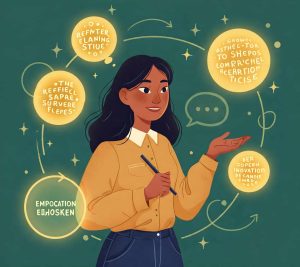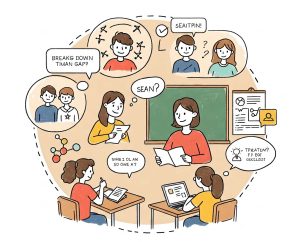By Monika Szíjjártó
I have always believed that the most important aspect of the learning process is for students to discover their own answers and thoughts. The use of coaching cards in my online lessons has further developed this approach and made my lessons/sessions even more impressive.
First Experiences
When I introduced my coaching cards, students reacted positively, but the question was, how could these pictures help a learner who had always been afraid to speak during school? That was when I understood just how deeply such cards could influence issues around speaking: “How interesting that I wasn’t nervous; I just said what I thought. I hated speaking, especially picture descriptions, because I was always afraid of making mistakes.”
Another learner shared: “I really liked it because the whole time, I spoke. Although in my mother tongue, I couldn’t explain it then.” This type of spontaneity and naturalness is crucial because it immerses students in language use.
Additional reflection: “I had never talked about this topic in my native language before.” This realization shows how valid the coaching principles are in language teaching—the answers are within us; we just need to find a way to bring them out. The cards help students discover their own answers and communicate in a more natural way.
Further Benefits
This freedom and naturalness are the foundations of the coaching approach: giving students the space to be themselves and find their own voice. Questions on the cards, such as “How can we take a step back and look at this from a different angle?” help them see things from new perspectives. This is useful not only in language learning but in all areas of life.
Using coaching cards has reinforced my belief that the answers are indeed within us—we just need to find a way to bring them out, even in a foreign language. These tools not only help develop language skills but also boost students’ confidence, enhance their problem-solving abilities, and encourage creative thinking.
Creative and critical thinking is also developed when learners start reflecting upon matters from different angles with some questions as a starting point. They will think differently as well as perceive their own ideas and thoughts from new perspectives by even surprising themselves with their own answers. This kind of thinking is not only very helpful for language learners but can support them in other life circumstances.
Coaching cards provide a truly deeper learning experience, and I recommend them to anyone who wants to offer their learners a richer and more enjoyable learning experience, and a chance to grow through learning a new language.






